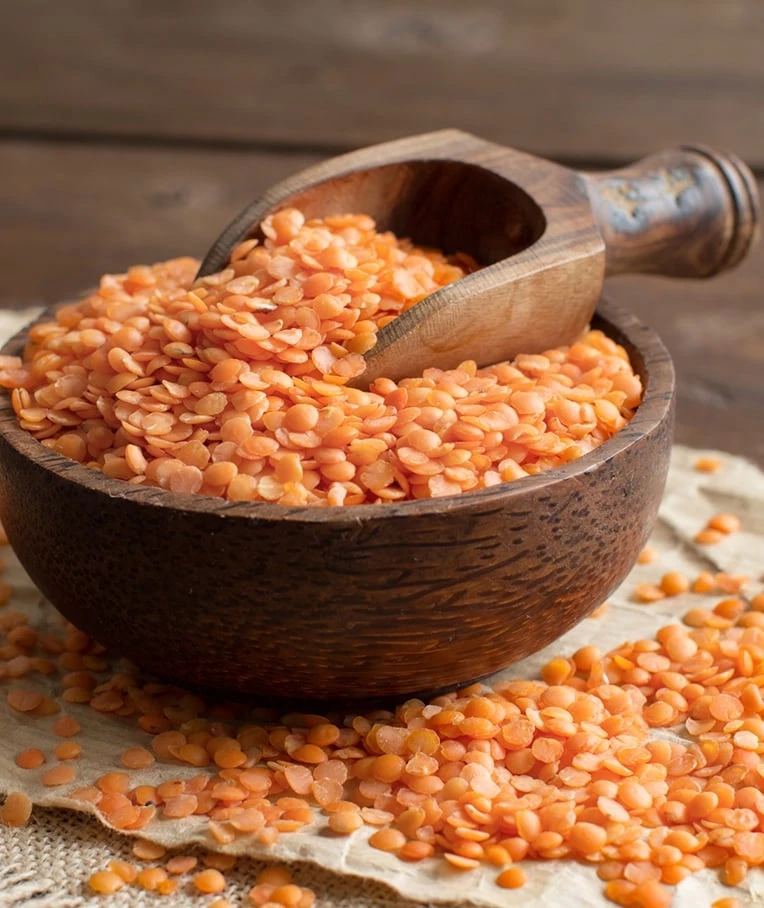Introduction
In the realm of nutritious pulses, masoor dal stands tall, revered for its rich taste and immense health benefits. This humble lentil, commonly known as red lentil, has been a staple in Indian households for centuries. Beyond its delectable flavor and versatility in culinary creations, masoor dal boasts an impressive array of nutrients that contribute to overall well-being. In this comprehensive exploration, we delve into the nutritional value of masoor dal per 100g and uncover the secrets behind its remarkable health-promoting properties.
Understanding Masoor Dal
Masoor dal nutritional value per 100g, scientifically known as Lens culinaris, is a type of pulse that belongs to the legume family. It is widely cultivated in various parts of the world, particularly in South Asia, where it holds a cherished place in traditional cuisine. Masoor dal is renowned for its vibrant red color and distinctive earthy taste, making it a favorite ingredient in soups, stews, curries, and salads.
The Nutritional Profile of Masoor Dal
Let's dive into the nutritional breakdown of masoor dal per 100g:
Protein: Masoor dal is a powerhouse of plant-based protein, offering approximately 25 grams per 100g serving. This makes it an excellent source of protein for vegetarians and vegans, aiding in muscle repair and growth.
Fiber: With around 8 grams of dietary fiber per 100g, masoor dal promotes digestive health by preventing constipation and regulating bowel movements. Fiber also helps in maintaining cholesterol levels and controlling blood sugar levels.
Complex Carbohydrates: Masoor dal provides roughly 60 grams of complex carbohydrates per 100g, supplying a steady source of energy and keeping you feeling fuller for longer periods.
Vitamins and Minerals: Masoor dal is packed with essential vitamins and minerals, including iron, potassium, magnesium, folate, and vitamin B6. These nutrients support various bodily functions, such as red blood cell production, nerve function, and immune system health.
Incorporating Masoor Dal Into Your Diet
There are countless ways to incorporate masoor dal into your diet to reap its nutritional benefits:
Dal Tadka: A classic Indian dish featuring tempered masoor dal seasoned with spices like cumin, mustard seeds, and turmeric.
Red Lentil Soup: A comforting and nutritious soup made with masoor dal, vegetables, and aromatic spices, perfect for chilly evenings.
Masoor Dal Salad: A refreshing salad combining cooked masoor dal with fresh vegetables, herbs, and a zesty dressing for a burst of flavor and nutrients.
The Health Benefits of Masoor Dal
Beyond its nutritional content, masoor dal offers an array of health benefits that contribute to overall well-being:
Heart Health: The high fiber and low-fat content of masoor dal help lower cholesterol levels, reducing the risk of heart disease and stroke.
Weight Management: The combination of protein and fiber in masoor dal promotes satiety and aids in weight management by curbing cravings and preventing overeating.
Blood Sugar Control: The complex carbohydrates in masoor dal are digested slowly, leading to gradual increases in blood sugar levels, making it suitable for individuals with diabetes.
Bone Health: Masoor dal is a good source of calcium and magnesium, essential minerals for bone health and preventing conditions like osteoporosis.
Conclusion
Masoor dal, nutritional value per 100g, emerges as a true superfood that not only tantalizes the taste buds but also nourishes the body from within. Whether enjoyed as a comforting soup, a hearty curry, or a vibrant salad, incorporating masoor dal into your diet can elevate your culinary experience while enhancing your health and well-being.
FAQs
1. Is masoor dal gluten-free?
Yes, masoor dal is naturally gluten-free, making it suitable for individuals with gluten sensitivities or celiac disease.
2. Can masoor dal help in weight loss?
Yes, masoor dal's high protein and fiber content can aid in weight loss by promoting satiety and reducing calorie intake.
3. How should masoor dal be stored?
Masoor dal should be stored in an airtight container in a cool, dry place away from sunlight to maintain its freshness and flavor.
4. Are there any potential allergic reactions to masoor dal?
While masoor dal is generally well-tolerated, some individuals may experience allergic reactions. It's essential to consult a healthcare professional if you suspect any adverse reactions after consuming masoor dal.
5. Can masoor dal be consumed daily?
Yes, masoor dal can be consumed daily as part of a balanced diet to reap its numerous health benefits. However, moderation is essential because excessive consumption may cause discomfort in the digestive tract for some people.
read more here
Your Health, Your Home: The Benefits of Home Nursing Services in New Jersey



